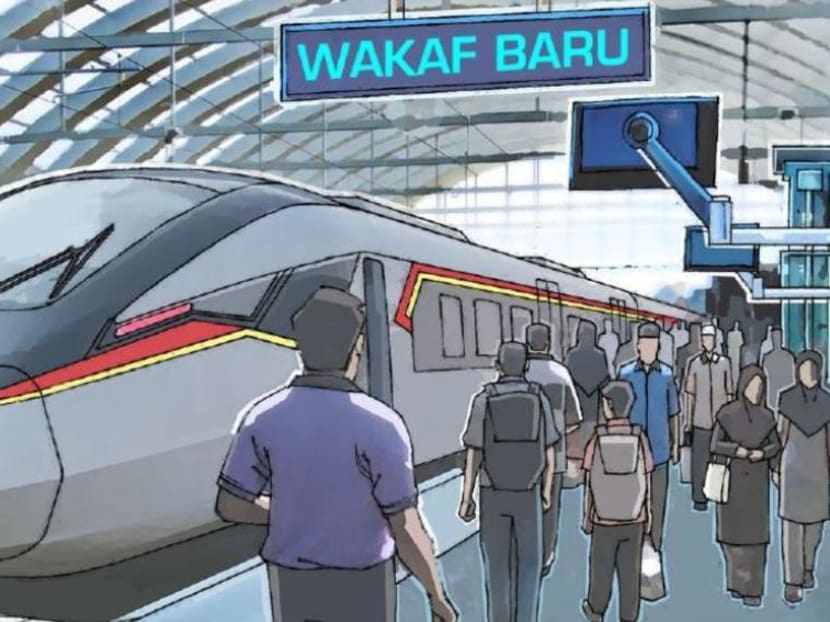Ahead of Beijing trip, Mahathir vows to scrap China-backed ECRL, energy pipeline projects
PUTRAJAYA — Striking a tough position ahead of his visit to Beijing this month, Malaysian Prime Minister Dr Mahathir Mohamad on Monday (Aug 13) said he would seek to terminate several Chinese-backed infrastructure and energy projects, including the East Coast Rail Link (ECRL).
PUTRAJAYA — Striking a tough position ahead of his visit to Beijing this month, Malaysian Prime Minister Dr Mahathir Mohamad on Monday (Aug 13) said he would seek to terminate several Chinese-backed infrastructure and energy projects, including the East Coast Rail Link (ECRL).
His comments, made in an interview with the Associated Press (AP), were the most definitive yet on the fate of the multi-billion projects, which have been suspended. The 93-year-old leader had previously suggested that the projects could be deferred or terminated.
During the interview, Dr Mahathir also cautioned against further attempts to militarise the South China Sea, which Beijing claims nearly all as its own.
“We are all for ships, even warships, passing through, but not stationed here,” Dr Mahathir told AP. “It is a warning to everyone. Don’t create tension unnecessarily.”
He will visit China on a five-day trip starting from this Friday, China's Foreign Ministry said on Monday.
He had said last month the "unfairness" of contracts for Beijing-backed projects were a key issue he would raise during his visit to China, where he will meet Chinese Premier Li Keqiang as well as President Xi Jinping.
Dr Mahathir, who came to power in May following a stunning election defeat for then prime minister Najib Razak, is reviewing major projects signed by the former government, saying many of them do not make financial sense for Malaysia.
The premier and some of his ministers have been highly critical of the benefits of certain Chinese projects in Malaysia.
"We are renegotiating the terms. The terms are very damaging to our economy," Dr Mahathir said in an interview in late May in reference to the ECRL contract, which he noted was unusual in that money from the RM55 billion loan given out by a Chinese bank was kept abroad and paid to the Chinese construction company in China instead of being drawn down in Malaysia.
"He (Najib) knew very well that the ECRL, for example, is not something we could afford. It is not going to serve any purpose, it is not going to give us any returns."
Weeks later, he said that Malaysia will continue with the project if it "gets better terms".
"For example, borrow from China RM55 billion, we don't think it should cost that much. The condition, is the contract given to Chinese company, used its own workers, brought everything from there. So what is there for Malaysia. We want to gain something for Malaysia," he said.
Dr Mahathir reiterated those comments in his interview with the AP, saying: "We don’t think we need those (rail and energy) projects. We don’t think they are viable. So if we can, we would like to just drop the projects."
If the projects could not be scrapped, Dr Mahathir said Malaysia hoped to at least put them on hold until a time when "perhaps the need will arise".
The 688-km ECRL will connect the South China Sea off the east coast of peninsular Malaysia with the strategic shipping routes of the Straits of Malacca to the west. The RM81 billion (S$27.16 billion)-project, awarded to China Communications Construction Company (CCCC), has been suspended.
The two pipeline projects, worth about US$2.3 billion, also involve Chinese state-owned firms. One of the projects involve a petroleum pipeline stretching 600 km along the west coast of peninsular Malaysia, while the other is a 662 km gas pipeline in Sabah, the Malaysian state on the island of Borneo.
In June, Malaysia's Finance Ministry said it has discovered dubious payments made in the two pipeline projects, with nearly 90 per cent of the contracts being paid out but less than 15 per cent of the work being completed.
Finance Minister Lim Guan Eng said the pipeline contracts were negotiated directly by Najib’s office, and the former prime minister had ignored red flags raised by the attorney-general’s office on both deals. But Najib has maintained that the negotiations and execution of the two projects complied with the necessary procedures and laws.
The previous Malaysian government under Najib had courted billions of dollars of Chinese investment, and was one of Southeast Asia's most enthusiastic supporters of President Xi Jinping's signature Belt and Road Initiative.
Dr Mahathir has struck a decidedly different tone, and signalling another departure from his predecessor's foreign policy approach, he visted Japan twice in recent months as part of a revival of his so-called Look East policy.
The new Malaysian leadership's rhetoric on mega-projects is however seen by some as a negotiation tactic ahead of high-level government talks.
Putrajaya has similarly threatened to cancel a high speed railway linking Kuala Lumpur and Singapore, before suggesting that the project could instead be postponed. AGENCIES
Sign up for TODAY's WhatsApp service. Click here:







